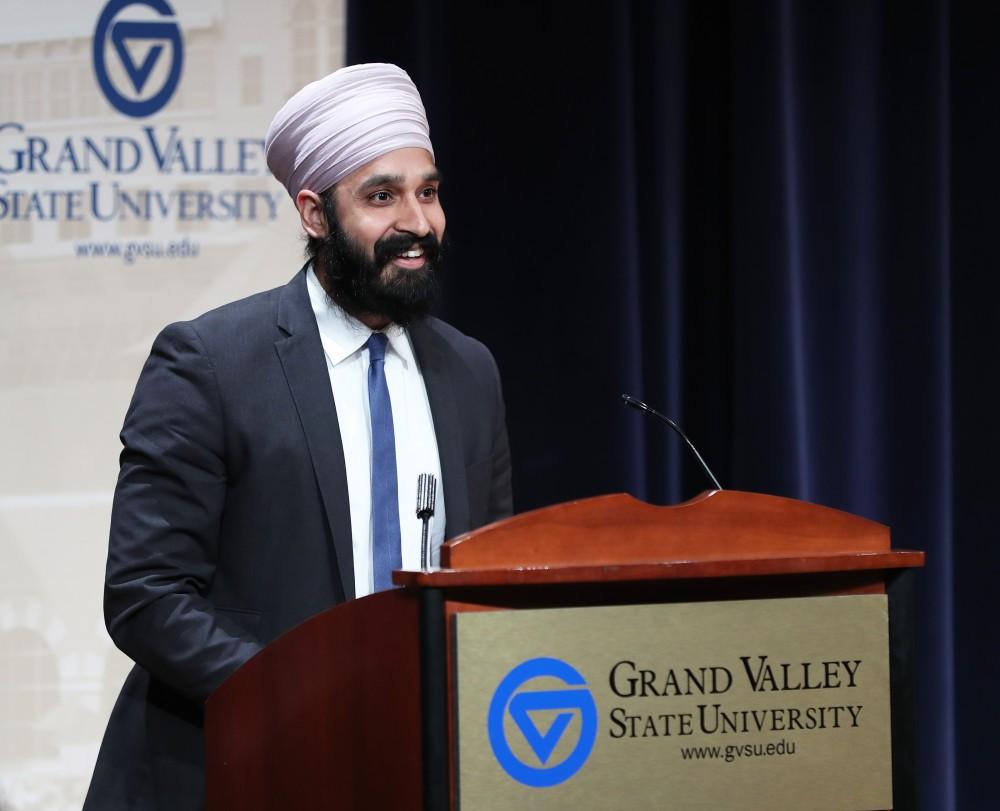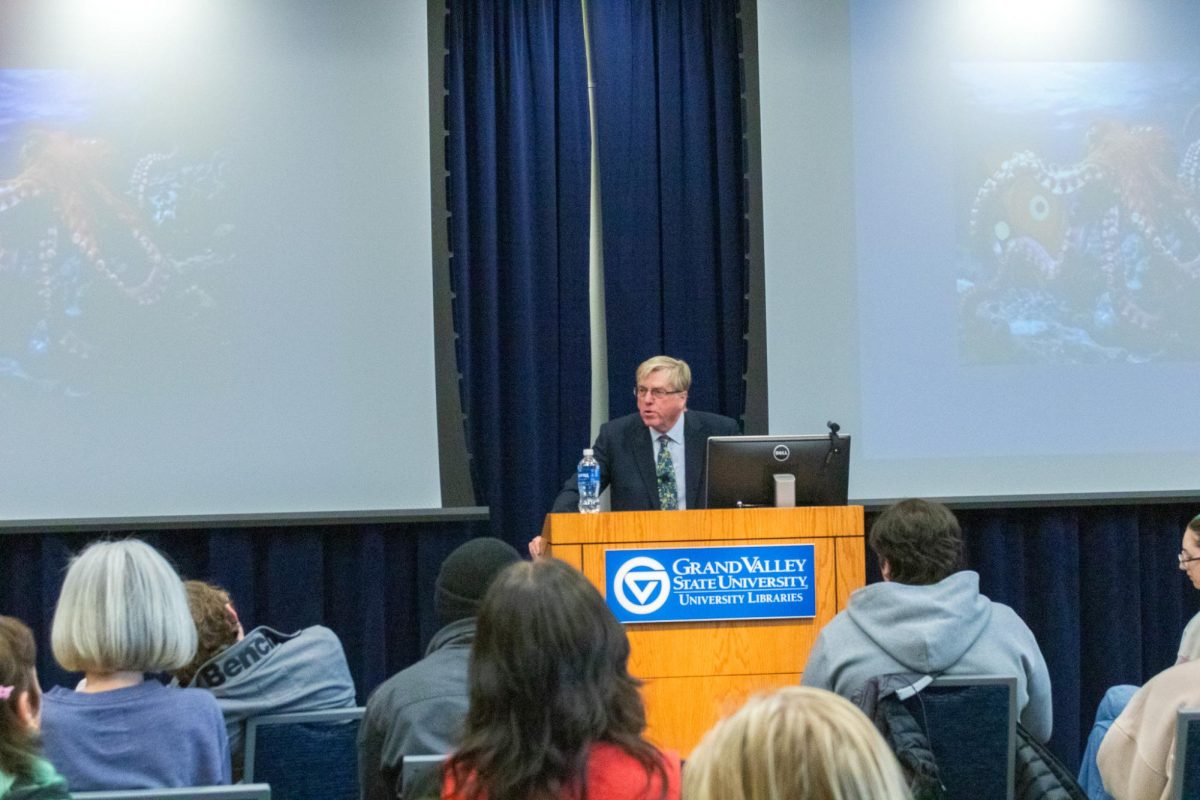Challenging racial bias, violence

GVL/Kevin Sielaff – Dr. Simran Jeet Singh speaks to the crowd gathered at Loosemore Auditorium in downtown Grand Rapids on Thursday, March 30, 2017.
Apr 3, 2017
Balbir Singh Sodhi was a Sikh American and proud gas station owner in Mesa, Arizona, when the Sept. 11 terrorist attacks occurred. There were 2,977 innocents killed that day, but it was only the beginning of a larger massacre on American soil that took place over the course of many years. Although members of Sodhi’s family said he was devastated by the attacks in New York, he was shot and killed in front of his own gas station four days after the attacks and became the first victim of a hate crime in the aftermath of 9/11.
The Sept. 11 terrorist attacks changed American law, culture, policy and life forever—and never has life been so different for Arab Americans since 9/11. In 2000, there were 33 anti-Arab offenses. In 2001, there were 546. The term “Islamophobia” was coined to put a name to anti-Muslim violence and hatred that was surging in America, but Islamophobia is also a phenomenon that affects Arabs of all different religions, not just Islam. As Simran Jeet Singh talked about in his lecture at Grand Valley State University, hate crimes, violence and rhetoric all derive from a concept he called the “racialization of religious identity in America.”
An assistant professor of religion at Trinity University and known interfaith scholar and activist, Singh was invited to speak in the DeVos Center Loosemore Auditorium Thursday, March 30, by the Kaufman Interfaith Institute for the yearly Rabbi Philip Sigal Memorial Lecture. The event was also co-sponsored by Campus Interfaith Resources, the Community Reading Project, Division of Inclusion and Equity, Muslim Students Association and religious studies program.
In his lecture, Singh addressed the hate crime that involved Sodhi to make a point about his theory as to why the framework of “mistaken identity” is simplistic and problematic. Many made the assumption after Sodhi’s death that, because he was Sikh and not Muslim, his attacker mistook his target. Singh pointed out that the attacker made no comments of wanting to specifically kill Muslims, contributing to the idea of “racializing religious identity.” He said violence is not always a case of mistaken identity.
Singh said life today for Arab Americans in the U.S. is difficult. Hate violence against Arabs was steadily decreasing following 9/11 up until 2008 when it started rising again. Today, violence against Arab Americans is increasing, becoming as prevalent as it was in 2001. He said it has gotten so bad that just the word “Muslim” is a trigger word for many.
“For me, what’s happening in our nation right now is scary,” Singh said. “It’s dangerous; it’s life threatening. We are seeing a world that’s being increasingly fractured along the lines of religion and race.”
The cause of this violence is not completely known. Some point to politicians and the media for anti-Muslim rhetoric. Singh said Muslims are being targeted for how they look and what they believe. He said the violence goes against the core beliefs of the U.S. and needs to be taken seriously.
“My belief is that we no longer have the luxury to simply sit back and condemn hate crimes when they occur,” Singh said. “We have the responsibility as a society to become more proactive, to take a stance, to stand with our Muslim sisters and brothers.”
Singh said the increasing phenomenon of white supremacy is a concern for the Muslim community and for Arab Americans as a whole. He said the U.S. has a long history of deliberate discrimination against minorities and that the U.S. government is allowing discrimination to trickle down into society in the form of institutional racism.
“This type of discrimination we are seeing filter down in society is being sanctioned by our own government,” Singh said. “What we have in this country is a system of laws and regulations that have been created by a particular group of people that weeds out others.”
The founding director of the Kaufman Interfaith Institute, Douglas Kindschi, said the institute wanted to bring a speaker to GVSU to address the growing concern of Islamophobia for this year’s Sigal Memorial Lecture. Sigal was a rabbi who did interfaith work in Grand Rapids.
“A very important issue coming up now is the fact that not only is Islamophobia being directed towards Muslims, it’s being directly at people who ‘don’t look American,’” Kindschi said.
Singh’s presentation drew loud cheers and applause after he was finished speaking.






















